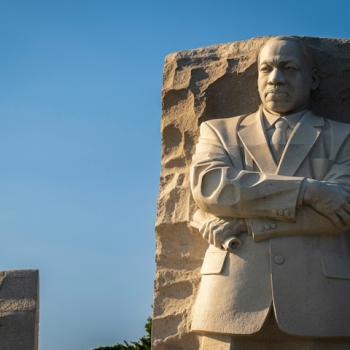Lectionary Reflections
John 13:31-35
Sunday, April 28, 2013
This short text from John's gospel is like a glowing candle in the darkness, a command to love one another amid the realities of violence and betrayal as a continuation of Jesus' ministry in the world. These verses serve as an introduction to Jesus' Last Discourse with his disciples in John. They contain distinctive themes of John's gospel: glorification, departure, and the command to love one another as a sign of discipleship to the world. They are sandwiched between Jesus' prediction of Judas' betrayal (13:21-30) and Peter's denial (13:36-38).
The command to love one another in this text is like a candle in a dark and brutal world, in danger of being blown out by the betrayal of Judas that precedes it and the denial of Peter that follows it. It reminds me of the seeming fragility of the good news of Easter in a violent world. We're now into the fifth week of the Easter season. In each of our lives the good news that Jesus Christ has conquered death and sin is susceptible to erosion by the sheer wear and tear of daily duties and disappointments. In the week that is past, it has been susceptible to explosion in several forms. They include the explosion of a pressure cooker bomb at the finish line of the Boston Marathon, the explosion of a fertilizer plant in West, Texas, and a rumbling collapse of earth in an earthquake in the Szechwan Province of China.
Amid all of this daily wear and tear and sudden explosive damage, is it any wonder that Easter seems to erode and explode as the weeks of the Easter season wear on? What is one command to love one another in the face of all this hatred? What is one man rising from the dead in the face of all this carnage?
Emotional honesty is a wholesome ingredient in the life of faith. It's all right to admit that our Easter zeal now seems a little bit unreal. There is a reason for the old saying "All good things must end someday." Lots of good things erode or wear off with time. Why should Easter be any different? The effects of your pain medication can wear off and only the ache remains. The fizzy excitement of romantic love can wear off and leave you with a flat feeling. Passwords can expire and leave you with denied access. Milk can spoil and leave you with a carton full of stink. Friendships can fade and leave as their only record some reproachfully happy photos. Loved ones die and leave loss behind. All good things must end someday. Jesus tells his disciples he is leaving to return to his Father. His earthly ministry is about to end. He instructs them to love one another as he has loved them, to continue the ministry of his Spirit among them. Talk about a candle in the wind!
When we experience a week like this past one, we can't help but wonder if Easter, already eroding, has now exploded. Where is the "As I have loved you, you also should love one another . . ." in the week that is past?
There is another old saying: "What can't be cured must be endured." Things that we want to end, persist: pain, regret, addictions, prejudice, the grief of bereavement, violence, and senseless suffering. The announcements of bombings, plant explosions, and natural disasters bring horror but also the resigned sense that "we've been here before." There is a relentlessly enduring quality to tragedy and violence in this troubled world.
Richard Lischer, in his new book Stations of the Heart: Parting with a Son (Alfred A. Knopf, 2013),offers an eloquent and poignant account of the illness and death of he and his wife Tracy's young adult son Adam due to cancer. He tells of the homily he preached at the wedding of Adam and his bride Jenny. Lischer says his sermon was okay, except for a comment he made near the end: "Someday, Adam and Jenny, someday you will be old. Still cute, but old. And at your sixtieth wedding anniversary you will hold hands and ask, 'How did we get so lucky?' But what you will really mean is, 'How Gracious God has been to us.'"
Lisher goes on to critique his wedding homily, "I think preachers should speak only what they have been given to say and not one word more. They should not pretend to have a privileged view of the future. They should hold something back against the night" (77-78).
What do we hold against the night of the week that is past? Not some vain hopes of a future free of violence and loss. We hold the promise that Jesus Christ has been raised from the dead and is present through the Holy Spirit (Jn. 14:15-31) to empower us to love one another, assured that God has ultimately won the victory over the ruler of this world. This is a promise we can "hold against the night" even as our anger and fear rages.
The flickering candle in the darkness has burned brightly in those who have shown love for one another this past week. Those who ran toward the explosion rather than away, who ran to help and comfort, who searched through the night for the perpetrators, who encouraged friends and family in a time of tears, those who now seek intelligence that will keep us alert to future threats. The candle burns brightly in those who seek to identify and offer community to isolated, misguided people.





